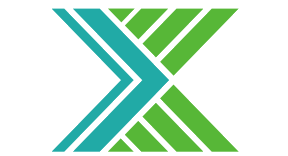Starting in 2011, the world’s first “3.0 Future School” was architectural designed by The Kubala Washatko Architects based on the principles of learning relationships and authentic learning. This design encompassed not only school space architecture, school finance, daily management, and ecosystem redesign but also curriculum, teaching, learning, and assessment redesign, along with the redesign of the school’s educational community. With a global perspective and the support of world-class education research and professional resources, the “3.0 Future School” has become an innovative model for K-12 education. Its reputation and influence have rapidly spread internationally, giving rise to what is now known as the Global Educational Community (GEC) approach.
Why the GEC Approach?
To ensure that every child and young person has the best start in life, with access to a safe, healthy, and inspiring learning environment and the skills and global mindset needed for the future, the education system must undergo transformation, not just reform.
Redefining Learning: Learning is a combination of discovery, study, research, and innovation, occurring wherever learners are and whenever meaningful relationships are formed.
Redefining Teachers: Teachers are the architects of learning relationships and the professional generators of the future assets and values of families and society.
Redefining School: The creator and hub of the learning ecosystem, responsible for educating children, bringing people together, and leading society to cultivate intellectual properties and values.
Mission and Responsibility of School: To educate children, unite people, and lead society.
Performance assessment in education began to gain significant attention and development in the 1990s. During this period, educators, researchers, and policymakers began exploring alternative assessment methods that went beyond traditional standardized tests and exams. Key features of this development included:
Shift from Standardized Testing
Holistic Approach
Performance-Based Assessments
Authentic and Contextual Learning
Emphasis on Higher-Order Skills
Assessment Diversity
Teacher Professional Development
Accountability and Policy Changes
Dr. Raymond Pecheone, Director of the Stanford Center for Assessment of Learning and Equity, an world influential leader in performance assessment for educators and learners, has been at the forefront of the GEC’s authentic learning with performance assessment for over a decade.
With 30 years of research and practice, the evolution of performance assessment in education has made remarkable progress. It has laid the foundation for ongoing efforts to develop more meaningful and effective methods of assessing students’ abilities and promoting deeper, authentic learning experiences.
Educators and scholars who were part of the Global Educational Community (GEC) recognized the rich learning and benefits of practitioners collaborating from around the world. To facilitate the acquisition of knowledge and understanding about global, regional, national, and local issues, as well as the interconnectedness and interdependency of different countries and populations, the GEC initiated an annual global project and conference. Educators and leaders from various countries, including Finland, Canada, Australia, China, and Israel, collaborated on projects based on a common theme. They then met to reflect on and share the diverse approaches used by each teacher in their classrooms. These annual projects involved developing curriculum around a shared theme and pairing individual teachers from different countries to co-create instructional units and teach in each other’s classrooms. The information gathered from these annual events contributed to the GEC’s ongoing examination of global research and effective teaching and learning practices, led by Dr. Guoli Liang and Dr. Ann Lieberman of Stanford University.
One step at a time, one teacher at a time, our global collaboration has never ceased. Regardless of the country, village, town, region, or continent, we continue to learn, develop, and build the future of global education together—our schools, our neighbors’ schools, our teachers, our children, and the children next door.
Now, as pioneers of the X-Challenges, alongside Embodied, a world-leading AI-empowered platform for children’s emotional and social development, we advocate for the X-Challenges to ensure the sustainability and positive impact of global education in shaping the future of human society.

